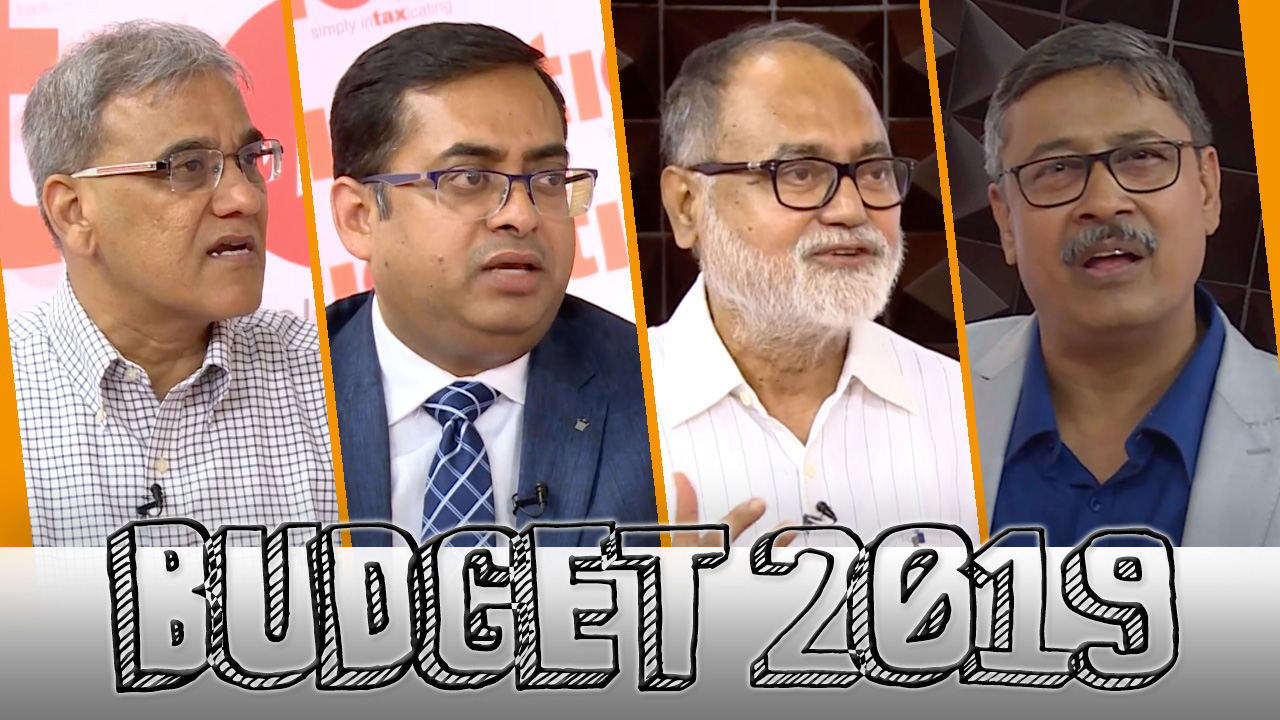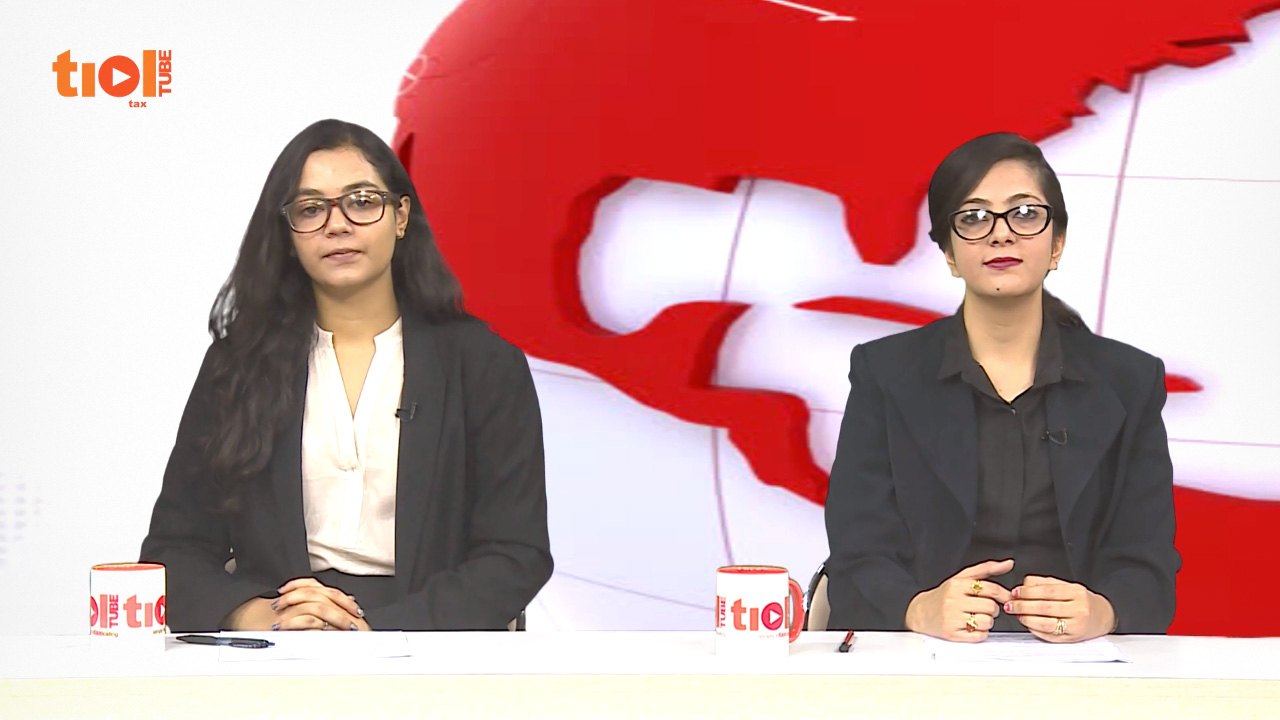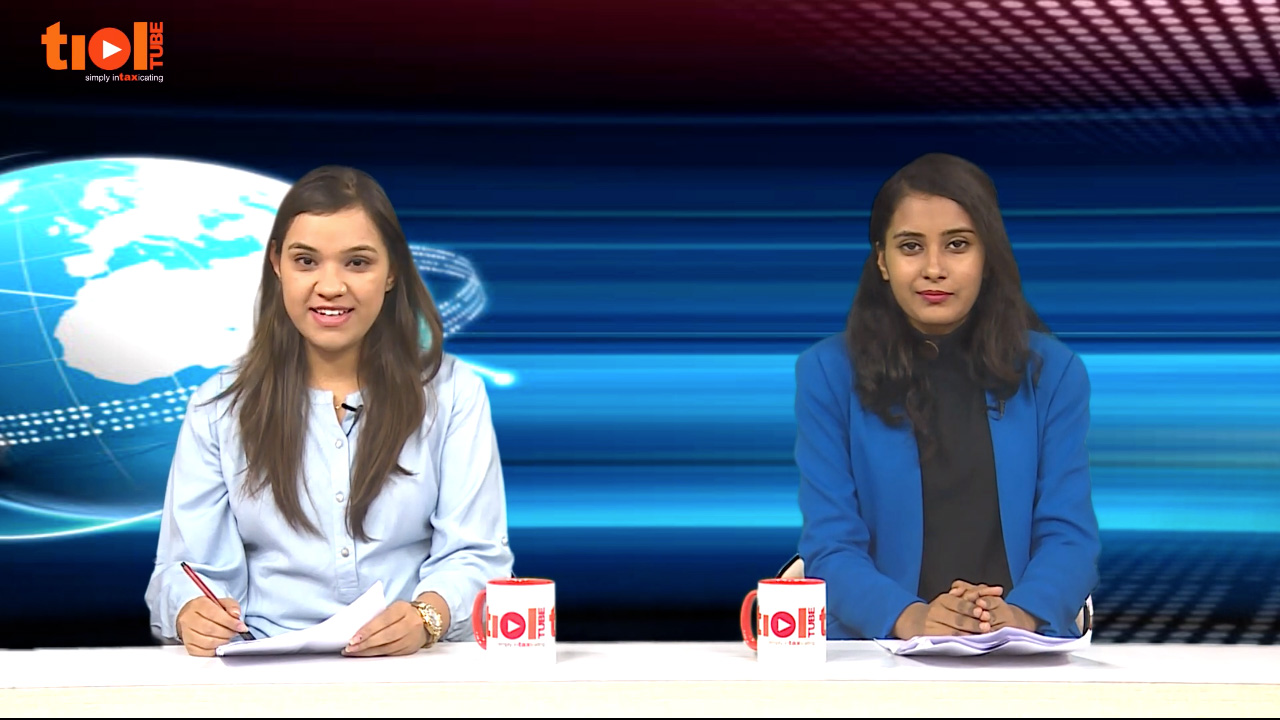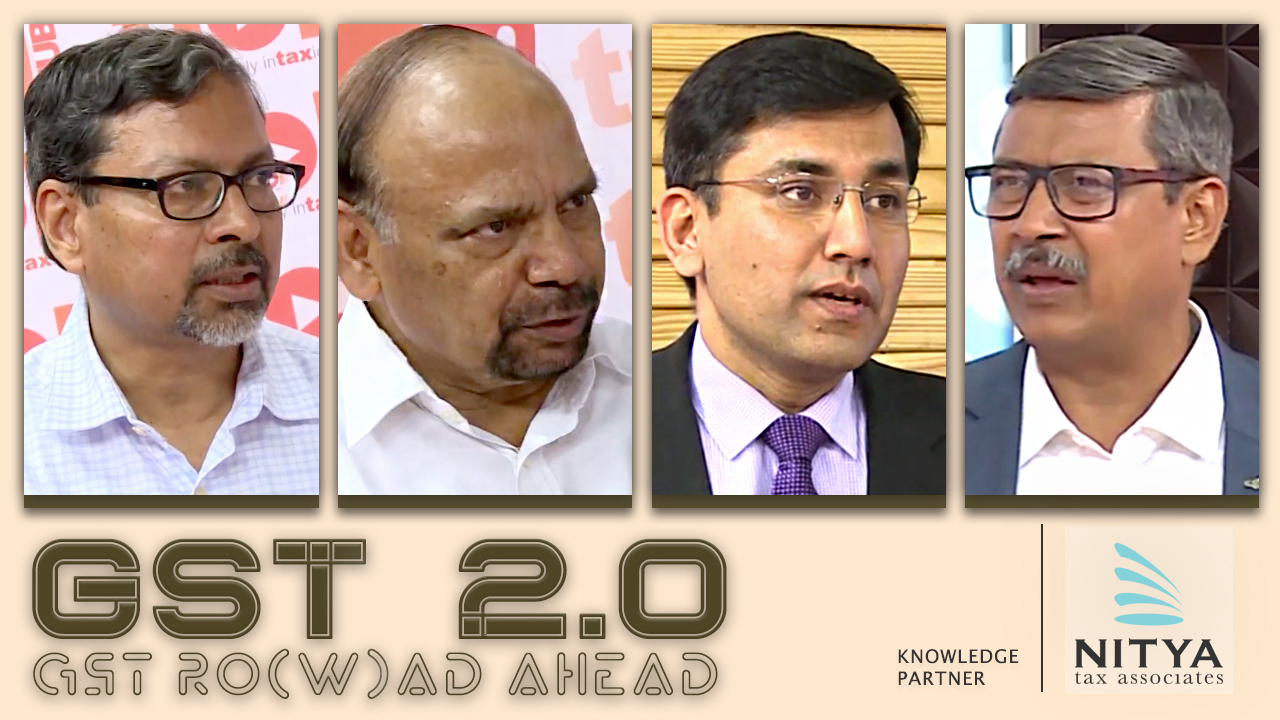|
SERVICE TAX
2019-TIOL-1235-HC-MUM-ST
Dilip Chhabria Design Pvt Ltd Vs CCE
ST - CESTAT had observed that from the facts of the case it was evident that the appellant was aware of his responsibility for payment of service tax and in fact, he was collecting the same from his clients but the same was kept with himself on the pretext that he was going through financial hardships; that since the appellant was aware of his liabilities in the law as he was filing his returns indicating the tax liability and was wilfully not depositing the tax collected, his conduct is not of simple ignorance but of willful default to hold the tax money for personal gains - Accordingly, the CESTAT held that the penalty as imposed needed to be upheld and dismissed the appeal - assessee before High Court against this order.
Held: Admitted position is that the extended period of limitation invoked for the purposes of service tax is not subject matter of challenge since the appellant had accepted its service tax liability - It is also an admitted position that the appellant had collected service tax from its customers/clients, but had failed to deposit the same with the Department only on account of financial difficulties faced by it - moreover, it is not disputed that failure to pay over the amount to the Revenue was noticed by the Department only on surprise visit in 2012 - parameters/conditions for purpose of invoking the extended period of limitation under Section 73(1) of the Finance Act, 1994 are similar/identical to the conditions for imposing equivalent penalty under Section 78 of the Finance Act, 1994 - challenge is only to the imposition of penalty and is based on the fact that there is no willful suppression on the part of the appellant as all the due liabilities had been declared in ST-3 Returns, though not paid over to the Revenue - undeniably, appellants have contravened the Finance Act, 1994 and Rules made thereunder, which obliges the assessee to make over the payment to the Government before the specified date - This non-payment was certainly with intent to evade the service tax as there was no justification for keeping the amounts recovered from the customer with itself and not passing it over to the Government on whose behalf it is collected - The financial difficulties faced by the appellant can never justify the non-payment of tax to the Government - above fact coupled with misrepresentation to its customers that the amount collected from them will be paid over to the Government, would clearly point to mala fide conduct on the part of the appellant - no reason to interfere with the impugned order of the Tribunal - appeal dismissed: High Court [para 8 to 10, 12]
- Appeal dismissed: BOMBAY HIGH COURT
2019-TIOL-1234-HC-MUM-ST
CCGST Vs Reliance Nippon Life Insurance Co Ltd
ST - Tribunal held that the demand as raised upon the respondent for the period May 2010 to April 2011 by Show Cause Notice dated 3rd August 2012 was time barred - This conclusion was arrived as the Tribunal found on facts that the respondent had bonafide belief that they are entitled to avail of Cenvat credit even in respect of inputs utilised for providing exempted services viz., Traditional Golden Plan - Accordingly, CESTAT held that penalty was not imposable under Section 78 of the Finance Act, 1994 upon the respondent since there was no intent to avail Cenvat credit illegally on the part of the respondent - Revenue appeal before High Court.
Held: When the respondent had a bonafide belief that it is entitled to Cenvat Credit even in respect of inputs used in providing Traditional Golden Year Plan, there would arise no occasion of making of declaration in ST-3 Returns - Besides, the Commissioner of Service Tax had himself recorded the understanding that the Life Insurance Industry as a whole believed they are entitled to Cenvat Credit as is evident from its communication dated 20th August 2011 addressed to CBEC, therefore, it cannot be said that the respondent intended to evade service tax - impugned order of the Tribunal has made a detailed examination on the issue of limitation and has come to a finding of fact that there was no intent on the part of the respondent to evade service tax - such finding of fact has not been shown to be perverse - Revenue appeal is dismissed: High Court [para 8, 9, 11]
- Appeal dismissed: BOMBAY HIGH COURT
2019-TIOL-1233-HC-MUM-ST
CCGST & CE Vs Prompt Personnel Consultancy Service Pvt Ltd
ST - CESTAT had held that appellant had addressed a letter dated 19.09.2006 to the Jurisdictional Deputy Commissioner, explaining therein the entire activities undertaken by it including payment of additional levy etc.; that in their statements dated 24.09.2010 and 20.09.2011 recorded under summons, the appellant had reiterated the facts regarding the services provided by it to contractees and also the recovery of levy and payment of gratuity/ex-gratia amount; however, the department did not issue the show-cause notice within the normal period provided under Section 73(1) of the Act but on 19.04.2012 seeking recovery of service tax allegedly not paid during the period January, 2007 to November, 2009 and, therefore, the demand was clearly time barred - inasmuch as the impugned order was set aside and appeal was allowed on the ground of limitation - Revenue appeal before High Court.
Held: Department was at all times during the period for which the demand has been raised were aware of the declaration made by the respondent that they will not be liable to pay the service tax on 41% levy collected from the contractee and paid over to the Grocerty Market and Shop Board - In these circumstances, the finding of fact arrived at in the impugned order of the Tribunal that there has been no suppression of facts to invoke the extended period of limitation cannot be said to be perverse - appeal is dismissed: High Court [para 6, 8]
- Appeal dismissed: BOMBAY HIGH COURT
2019-TIOL-1705-CESTAT-DEL
BSNL Vs CCE & ST
ST - CENVAT credit of Rs.1,21,60,874/- is acknowledged to have been wrongly availed by the appellant - It is also an admitted fact that the moment this inadvertence in the books of accounts of the appellant was brought to their notice, they reversed the amount in excess from their credit balance in the month of March 2010 itself - It, therefore, becomes revenue neutral situation as far as the books of accounts of the appellant are concerned and since the stage of taking or utilising the credit had not yet come, there is no occasion for revenue to suffer any loss on this account - Order of appropriation of the reverse amount as passed by the Commissioner has no practical meaning: CESTAT [para 4]
ST - Interest - Where the assessee has not taken or utilised credit but has only availed a wrong credit in their books of accounts and on pointing out the mistake has immediately reversed the entry, it is clear that no benefit of wrong entry in account books was taken - Interest in the given circumstances is not payable - Circular 897 dated 03.09.2009 relied upon by Commissioner cannot be allowed to supersede the law which has already been laid down by the statute as well as by the Jurisdictional Courts: CESTAT [para 6]
ST - Penalty - Since the wrongly availed cenvat credit stands reversed way back in March 2010 and since the appellant immediately has acknowledged the said wrong availment as inadvertent mistake that too in books of account only, there remains no question of any wilful intention to evade duty or to have the unjust enrichment on the part of the appellant - question of imposition of penalty does not at all arises, rather it is a fit case and where benefit of Section 80 of Finance Act 1944 should have been given to the appellant and it is also a fit case where not even a SCN should have been issued - Question of imposition of penalty is absolutely irrelevant: CESTAT [para 7]
ST - Limitation - Fact of inadvertent mistake and the reversal of wrongly availed cenvat credit in March 2010, i.e., much prior to the issuance of the impugned SCN of the year 2013 was very much in the knowledge of the Department - Seeing from any angle SCN is held barred by time - Impugned order set aside and appeal allowed: CESTAT [para 7, 8]
- Appeal allowed: DELHI CESTAT
2019-TIOL-1704-CESTAT-DEL
BSNL Vs CCE
ST - Telecommunication Services - Appellant provides telecommunication services all over India and for administrative convenience is divided into various SSA (Secondary Switching Area) and all SSAs are separately registered under FA, 1994 for discharging tax liability - BSNL - Jodhpur controls the repairs and maintenance of 4-SSA, namely Jodhpur, Nagaur, Jaisalmer and Barmer - appellant BSNL-Jodhpur has taken CENVAT credit of service tax paid on repairs and maintenance services, which has been denied on the grounds that such input services were used by other SSA (Nagaur, Jaisalmer and Barmer) and not by appellant - appeal to CESTAT.
Held: Appellant-assessee have got a common PAN no. and is one organisation providing services throughout India and their service tax registration number is similar (PAN based) - CENVAT credit of service tax / inputs or capital goods, is not confined to the registered premises, but can be availed even if capital goods are received beyond the registered premises for providing output services - Accordingly, appellant is entitled to credit on capital goods, input services and inputs which are received in one SSA and are distributed to other SSA - impugned order is set aside and appeal is allowed with consequential relief: CESTAT [para 3]
- Appeal allowed: DELHI CESTAT
2019-TIOL-1698-CESTAT-BANG
Mobme Wireless Solutions Ltd Vs CCT & CE
ST - The only issue to be decided is, whether the demand of Service Tax raised against assessee is correct - This demand pertains to non-reversal of CENVAT credit under Rule 6 (3) (i) of CCR, 2004 - The period of dispute is April 2011 to March 2015 - A SCN came to be issued alleging inter alia that the assessee had not reversed CENVAT credit, since, according to Department, the assessee was found to be providing both taxable and non-taxable services; that there was short levy of Service Tax under 'reverse charge mechanism'; that this required the reversal of CENVAT credit against the exempted value of services provided to Jammu & Kashmir - If no input credit is availed on input services used for rendering exempted services, then there may not be any revenue loss - Further, it is also a matter of record that an O-I-O came to be passed covering a similar issue for earlier periods and hence, the arguments that there was no suppression or fraud and that therefore larger period of limitation could not be invoked, merits consideration - There is no dispute with regard to payments evidenced by tax payers' counterfoils on which there is no discussion nor any finding and in any case, the same will have to be given due credit, which is not done here - The matter requires de novo adjudication for which reason, the impugned order is set aside: CESTAT
- Matter remanded: BANGALORE CESTAT
2019-TIOL-1697-CESTAT-MAD
Nethaji Apparel Park Vs CC, CE & ST
ST - The major part of demand stands confirmed against assessee under the category of "Club or Association Service", which have already been held to be not payable by High Court of Gujarat in case of M/s. Sports Club of Gujartat Ltd. - 2013-TIOL-528-HC-AHM-ST wherein by following the ratio laid down in the case of M/s. Ranchi Club Ltd. - 2012-TIOL-1031-HC-JHARKHAND-ST the said entry under the "Club or Association Service" was held to be ultra vires - Accordingly, the demand under the said category is not sustainable - The challenge is only on imposition of penalty - Inasmuch as, the assessee has discharged tax liability from the date of assent of President to the FA, 2012 as also by appreciating the fact that the litigation was going on in respect of the tax liability on Renting of Immovable Property, no reasons found to impose any penalty upon the assessee - Accordingly, while confirming the demand of service tax as also interest, the penalties are set aside - Apart from these, the assessee is denied Cenvat credit of service tax paid on Rent-a-Cab Service on the ground that the same cannot be considered cenvatable input services - The issue is no more res integra and stands decided in favour of assessee by Tribunal decision in Fiem Industries Ltd. - 2016-TIOL-1451-CESTAT-MAD - The assessee is entitled to the credit: CESTAT
- Appeal allowed: CHENNAI CESTAT
CENTRAL EXCISE
2019-TIOL-1707-CESTAT-ALL
Birla Corporation Ltd Vs CCE
CX - Section 4 of the CEA, 1944 - Valuation Rules 2000 - 'Cement' manufactured by the appellant and utilized within the factory of manufacture - contention of revenue is that the appellant should have paid Central Excise duty on the basis of prices adopted for clearance of the goods to institutional buyers.
Held: Goods were not sold and the only rule that is applicable to the goods which are not sold is Rule 8 of Valuation Rules and, therefore, the stand taken by revenue is incorrect - impugned order set aside and appeal allowed: CESTAT [para 2]
- Appeal allowed: ALLAHABAD CESTAT
2019-TIOL-1706-CESTAT-DEL
Dee Tee Industries Ltd Vs PR CC & CE
CX - Appellants have deliberately planned and executed removal of goods by under invoicing them through their consignment agent - Penalty has been rightly put on them under rule 26 of the Excise Rules - adjudicating Authority has, therefore, rightly imposed penalties on them under Rule 26 of Central Excise Rules - no illegality has been committed by the adjudicating authority on this score: CESTAT [para 10, 11]
CX - Regarding the duty quantified in respect of clearance affected by the appellant to their Ahmedabad customer, it is seen that the Department has conducted investigations in respect of only seven cases which has been accepted by the appellant - however, in the remaining cases no investigations have been conducted by the Department - It is the contention of the appellant that they have only resorted to undervaluation of sale to the unorganized sector but for the organised sector, they have not resorted to undervaluation of their product and cleared the goods at the invoice price only on which Central Excise Duty stands paid; that no additional consideration has been recovered by way of cash in these cases - incidentally, the Department has procured the invoices of M/s Mehta Alloys, Abhinav Steels, M/s Sunrise Enterprises etc., which indicates that the assertion made by the appellant that under invoicing is resorted to only in respect of clearances to unorganized sector only is not sustainable - Bench is convinced that in those cases also, the appellant would have recovered excess amount than invoiced amount to defraud state exchequer by less payment of Central Excise Duty - adjudicating Authority has rightly denied the cum duty benefit - no reason to interfere with the order passed by the adjudicating authority - impugned order upheld and appeals rejected: CESTAT [para 8, 9, 12, 13]
- Appeals rejected: DELHI CESTAT
2019-TIOL-1703-CESTAT-MAD
Chemplast Sanmar Ltd Vs CGST & CE
CX - Although the appellant has availed the credit after 01.04.2011, when the provision of service has been completed prior to 01.04.2011, as per the Master Circular dated 28.02.2011 issued by the Department, the appellants would be eligible for credit: CESTAT [para 5.2]
CX - Input Service - Rule 2(l) of CCR, 2004 - During the relevant period, the definition of "input service" had a wide ambit as it included the phrase "activities relating to business" - Garden Maintenance, Manpower Supply activity at marine terminal, Plant civil works, Micro Concrete Civil Work, Cable laying from plant to marine terminal, landscaping, construction of helipad, pest management, cleaning of bushes and disposal, construction of lorry parking area, fencing work at colony, painting work at colony, civil and plumbing work at colony, laying of drinking water line in colony, grass cutting - earth filling, landscaping, Landscape services, garden maintenance, civil and plumbing works at residential colony, Air Travel Agency Service, tour operator/rent-a-cab service, Travel Agent, video coverage, tourist operator, manpower recruitment for residential colony, works contractor for residential colony, cleaning services for residential colony, maintenance and repair at residential colony, Colour washing at colony, construction of hazardous material storage shed, plumbing work at colony are Input services as most of these services are availed by the appellant for carrying out the business of manufacture - disallowance of credit is unjustified - impugned order set aside and appeals are allowed with consequential relief: CESTAT [para 5.3, 6, 7]
- Appeals allowed: CHENNAI CESTAT
2019-TIOL-1696-CESTAT-AHM
Patodia Filaments Pvt Ltd Vs CCE & ST
CX - The assessee-company manufactures Polyester Texturised Yarn falling under Chapter 60 of the CETA - It availed Cenvat credit of inputs used in manufacturing final products and capital goods - For the period between 09.07.2004 to February 2007, the assessee availed benefit under Notfn No 29/2004-CE & cleared goods upon payment of duty - From 01.03.2007, the assessee began availing benefit under Notfn No 30/2004-CE & reversed credit proportional to goods lying in stock - Some amount of balance credit was lying in stock after such reversal - Subsequently, the assessee shifted its manner of clearance from Notfn No 30/2004-CE and vice versa till December 2011 & during such period, the assessee paid duty on finished goods, reversal of credit on stocks and clearance of wastage and capital goods from Cenvat a/c - The Revenue issued an SCN proposing reversal of accumulated credit as per Rule 11(3) inserted vide Notfn No 30/2004-CE on grounds that such credit had been wrongly availed & wrongly utilized by the assessee for payment of duty on wastage - On adjudication, duty demands were confirmed with interest & penalty, along with personal penalty being imposed on the assessee's authorized signatory - Hence the present appeals by the assessee.
Held : The Notfn No 30/2004-CE is not an absolute notification but is a conditional one issued u/s 5A - It carries the condition of non-availment of credit - Sub-rule (3)(i) and (ii) of Rule 11 of CCR 2004 are separate - In the present case, Rule 11(3)(i) would apply as per which the manufacturer is required to pay an amount equivalent to the Cenvat credit in respect of inputs used to manufacture such final product and is lying in stock or is in process or is contained in the final product lying in stock - Presently, all the conditions enumerated in Rule 11(3) have been followed by the assessee & so no reversal of credit lying in balance as on the date of opting for Notfn No 30/2004-CE - Hence credit is allowed to the manufacturer & no balance credit is liable to be reversed: CESTAT (Para 1,2,3,6)
- Assessee's appeals allowed: AHMEDABAD CESTAT
CUSTOMS
NOTIFICATION
dgft19pn011
Waiving off the requirement of destruction certificate from excise/custom authorities for the unutilised duty free imported material in case of imports from unregistered sources with pre-import conditions.
Trade Notice 18
Imports of Maize (feed grade) under the TRQ Scheme for 2019-20 cnt41_2019
CBIC revises tariff rates for several commodities
CASE LAW
2019-TIOL-1695-CESTAT-MAD
Gazebo Industries Ltd Vs CC
Cus - Assessee filed five shipping bills for export of items declared as 100% cotton knitted T-Shirts to Moscow and Russia - The goods were seized under a mahazar and thereafter, a SCN came to be issued proposing confiscation and imposition of penalty - Assessee submits that they are aggrieved against penalty imposed on them - He further submits that the SCN never proposed imposition of any penalty against the first assessee, which even according to the SCN, was the Principal offender - Admittedly, the first assessee is the Principal offender, neither is there any proposal in SCN for imposition of penalty as against the said company nor did the Adjudicating Authority passing the O-I-O or the de-novo Order, impose any penalty on the Principal - Therefore, the company not having been penalized would ipso facto mean that guilt in the first place is not proved beyond reasonable doubt even against the principal offender - In these circumstances, the co-noticees or co-offenders cannot be worse off than the principal offender and therefore, the penalties imposed against them is unsustainable - The case of Revenue is a sheer aimless shot in the air - There is no order against the first assessee/alleged main culprit, even in the second chance/round, which only indicates that the allegation could not be taken beyond the very first step of establishing the guilt or motive, to attract penalty against it; and when the role of the very main culprit itself could not be established, then it is ex-facie wrong to fasten the liability on co-accused - In any case, it is an admitted position of law that a co-accused cannot be worse off than the prime accused - Albeit wild allegations, the factual position clearly indicate that the goods in question were permitted to be exported, to a different buyer, at a lower price and there was no ambiguity or doubt with regard to export of goods impugned in present proceeding at the lower value: CESTAT
- Appeals allowed CHENNAI CESTAT |





 By R Sridhar
By R Sridhar 



